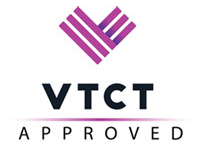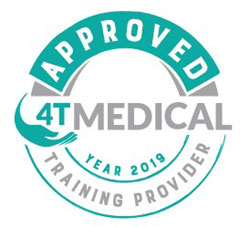Vitamin drips, also known as vitamin IV drips, are a form of intravenous therapy that delivers vitamins and minerals directly into the bloodstream. Administered by trained medical professionals, this treatment has gained popularity for its potential benefits in enhancing patient health and well-being.
Compared to oral supplements, vitamin drips offer a higher absorption rate and allow for more precise dosing and higher concentrations of essential nutrients. Common vitamins and minerals used in IV therapy include magnesium, calcium, vitamin B, zinc, arginine, glutamine, and vitamin C. These infusion therapies have been found to improve immune function, support wound healing, and treat various medical conditions such as severe asthma, eclampsia, gastrointestinal disorders, end-stage renal disease, and nutritional deficiencies.
However, it is crucial to recognize that vitamin IV drips carry risks and should only be administered and supervised by trained medical professionals who have completed a specialist vitamin IV infusion training program. This article will explore the benefits and potential risks associated with vitamin drips, providing valuable insights into their role in enhancing treatment outcomes.
Key Takeaways
- Vitamin drips, or vitamin IV drips, are highly effective treatments for patients with serious medical conditions.
- IV drips have a higher absorption rate and can deliver higher concentrations of vitamins compared to oral supplements
- IV drips are recommended for patients who have not responded well to oral supplements or cannot swallow or digest vitamins orally
- Vitamin C drips are widely used in patient rehabilitation and treatment and may be used to treat nutritional deficiencies and scurvy
What are vitamin drips?
Vitamin drips, also known as vitamin IV drips, are a highly effective treatment for patients with serious medical conditions. They deliver higher concentrations of vitamins and minerals via a small tube inserted into a vein (IV), resulting in a higher absorption rate compared to oral supplements.
These drips are administered by trained medical professionals in various healthcare settings such as hospitals, rehabilitation centers, nursing facilities, and even at home for hospice or palliative care patients.
The main advantage of vitamin drips is their ability to provide precise dosing and ensure sufficient vitamin levels in patients who cannot swallow or digest vitamins orally. IV drips are particularly recommended for patients who have not responded well to oral supplements.
Common vitamins and minerals used in IV therapy include magnesium, calcium, vitamin B, zinc, arginine, glutamine, and vitamin C.
Overall, vitamin drips offer an efficient and targeted approach to enhance treatments for patients with serious medical conditions.
Common vitamins and minerals used in IV infusion therapy
Common minerals and essential nutrients are often included in IV therapy to support overall health and address specific medical conditions.
Magnesium, calcium, vitamin B, zinc, arginine, glutamine, and vitamin C are some of the most commonly used vitamins and minerals in IV drips.
Magnesium IV therapy is utilized in the treatment of severe asthma and eclampsia during pregnancy.
Vitamin B complex IV therapy is recommended for patients with gastrointestinal conditions and end-stage renal disease.
IV therapy with vitamins and minerals can also aid in improving immune function and supporting wound healing in patients with chronic or non-healing wounds.
Vitamin C drips, which can reach higher concentrations in the blood compared to oral intake, are widely used in patient rehabilitation and treatment.
They may also be used to address nutritional deficiencies and scurvy, as well as in total parenteral nutrition (TPN) for certain patients.
Potential risks and considerations
One important aspect to consider when undergoing IV therapy is the potential risks and considerations associated with the procedure.
While vitamin drips can be highly effective in delivering vitamins and minerals directly into the bloodstream, there are possible side effects and complications to be aware of.
Excessive intake of vitamins through IV drips can lead to adverse reactions and toxicity.
Patients with kidney disease or certain heart conditions may not be suitable candidates for vitamin IV drips due to the potential strain on these organs.
Additionally, there is a risk of injection site infections, as well as rare cases of blood clots or air embolisms.
It is crucial that vitamin IV drips are administered and supervised by trained medical professionals to minimize these risks and ensure the safety of the patients.
Frequently Asked Questions
How long does it take to receive a vitamin drip treatment?
The duration of a vitamin drip treatment can vary depending on the specific circumstances and the individual patient. However, on average, the administration of a vitamin drip treatment can take anywhere from 30 minutes to a few hours.
Can vitamin drips help with weight loss or boosting metabolism?
Vitamin drips have not been proven to aid in weight loss or boost metabolism. While they can provide necessary nutrients, their effects on weight and metabolism are not supported by scientific evidence.
Are there any potential allergic reactions or side effects to vitamin drips?
Potential side effects of vitamin drips include excessive vitamin intake, injection site infections, blood clots, and air embolisms. Allergic reactions are possible, and individuals with kidney disease or certain heart conditions may not be suitable candidates for vitamin drips.
Are vitamin drips covered by health insurance?
Vitamin drips may or may not be covered by insurance, as it depends on the individual's insurance plan and specific medical condition. It is recommended to contact the insurance provider to determine coverage for vitamin drip therapy.
Can vitamin drips be used as a preventive measure or for general health maintenance, or are they only for treating specific medical conditions?
Vitamin drips can be used for preventive measures or general health maintenance in addition to treating specific medical conditions. They provide a highly effective method of delivering vitamins and minerals directly into the bloodstream, ensuring optimal absorption and precise dosing.
Why Study With Us
We want you to thrive and go onto to enjoy a long career in beauty.
About Us
We are an independent Beauty Training Academy and Beauty Salon in Hounslow, West London.
We are an approved training centre for VTCT, Focus, Qualsafe and a CPD "Centre of Excellence".
Our People
 Headed by the principal & owner -Sally - Courses are delivered by a team of dedicated tutors who have a wealth of experience in the beauty industry.
Headed by the principal & owner -Sally - Courses are delivered by a team of dedicated tutors who have a wealth of experience in the beauty industry.
Our beauty school was formed through passion for beauty and the desire to help others achieve their goals.
Sally is very passionate about the beauty industry, and after practicing beauty therapy for many years she took over Beautiful World. .
What Our Customers Say

"I just wanted to say a BIG thank for giving me an excellent training experience at your Beauty academy. I thoroughly enjoyed the VTCT NVQ Level 3 Beauty course and thanks to you and Kay who are brilliant at what you do, the course was so good. I will miss coming in on Tuesdays."

"I appreciate the support and guidance provided throughout the course. I totally recommend your training school to anyone who wants good training, unlike other beauty schools, I won't mention, you were very professional and thorough throughout. Thanks again."

"Excellent courses tutors very good Tutors are very patient and explain everything clearly."

"Course was really nice and the tutor were really helpful! Now I feel more comfortable when I do waxing and have a full Level 2 qualification! Thank you so very much!"







 0203 490 2815
0203 490 2815 admin@bwtraining.co.uk
admin@bwtraining.co.uk 648 Hanworth Road, Hounslow TW4 5NP
648 Hanworth Road, Hounslow TW4 5NP www.beautifulworldtrainingacademy.co.uk
www.beautifulworldtrainingacademy.co.uk 


